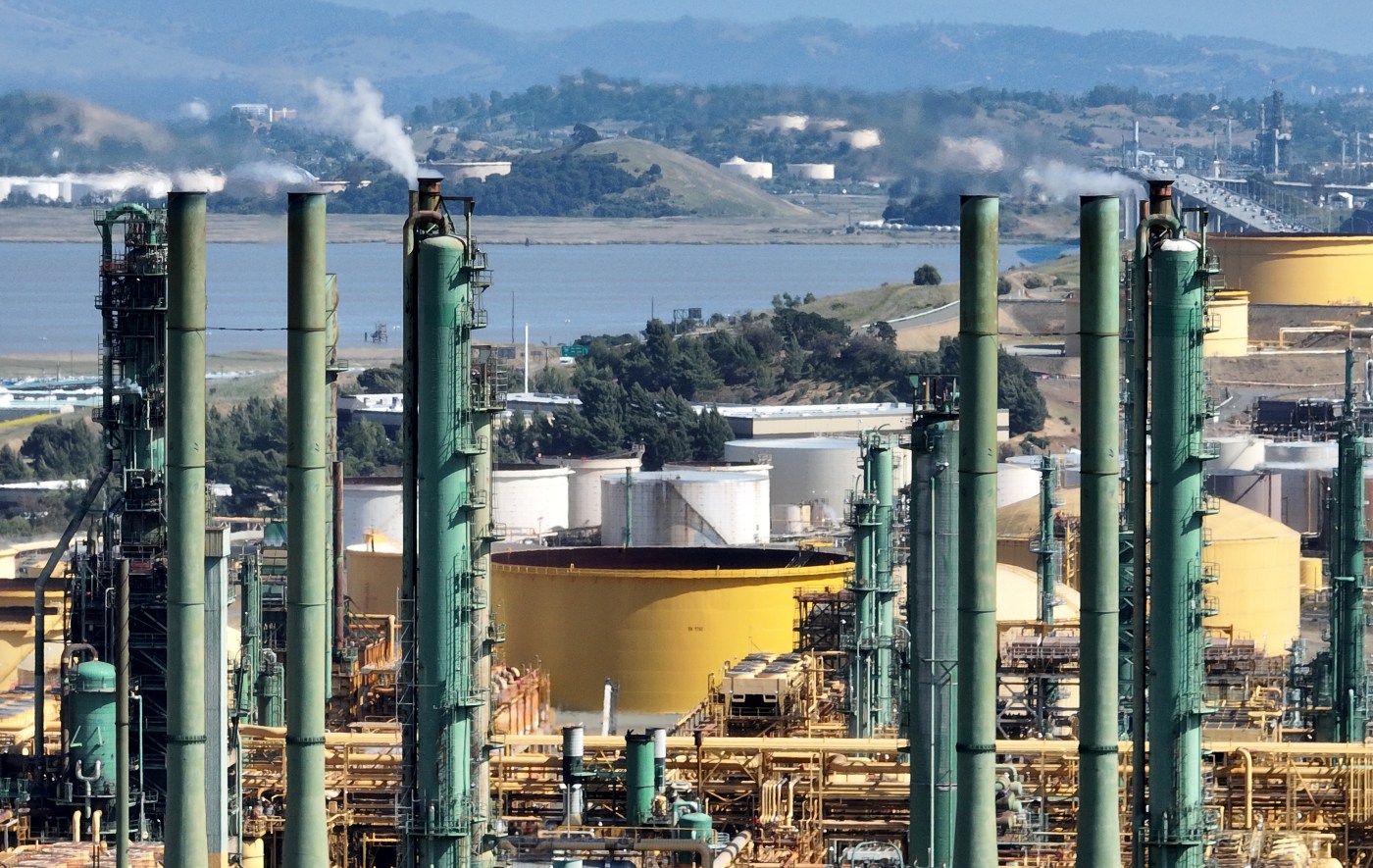
Submit your letter to the editor via this form. Read more Letters to the Editor
Where is Newsom
as refineries teeter?
Re: “Oil refinery delivers ‘intent to idle’ notice” (Page A1, April 17).
The Bay Area News Group recently ran an article that discussed the possible closing of Valero’s Benicia refinery. In fact, three California refineries are now slated to close by the end of 2026: Phillips’ Wilmington refinery, Valero’s Wilmington refinery and Valero’s Benicia refinery. This is a loss of 369,000 barrels per day of crude oil production, or nearly 23% of California’s current refinery capacity.
Fundamental economics tells us that the result will be a dramatic increase in gasoline prices. In a recent paper, professor Michael Miche of USC predicted that the impact could be gasoline prices of over $8 a gallon. This was before Valero confirmed the closing of its Benicia refinery by the end of 2026.
The economic impact will be devastating, and Gov. Newsom has been AWOL.
R.P. Girouard
Atherton
In current climate, we all
could use civics course
In reading the paper on Wednesday, I’m struck by how far-reaching and drastic the cuts are that are being made by the current administration and DOGE.
It occurs to me that it’s time for a new federal law that makes it mandatory for everyone over the age of 18 years old to take a review class in basic civics, along with a test to make sure they all “got it.” One of the first questions would be, “What are the essential functions of a central government in a modern-day state?” One function is to provide for the common good and to protect its most vulnerable citizens (and those living within our borders). Another is to promote that which makes life worth living … the arts, music. These are as essential as protecting our national borders and international relations.
Basic civics, everybody. Basic civics.
Rosalie Arntzen
Sunnyvale
Bike lanes must allow
for cars turning right
Caltrans has reconfigured most of El Camino Real in Palo Alto and Mountain View to provide wide bicycle lanes in both directions. So far, so good. And, they are planning to install plastic lane separators to provide more safety to bicycles.
I hope they will follow the vehicle code — turn right from as close to the curb as possible — and allow vehicles to merge into bike lanes a sufficient distance before making a right turn into a cross street or a private driveway. I have seen roads where a motorist is prevented from getting close to the curb by such separators, creating a dangerous situation. It is not easy for a motorist to look out for pedestrians in the front and bicycles coming from behind at the same time.
Dinesh Desai
Los Altos
Citizen pressure could
alter U.S. policy on Israel
Re: “U.S. must change course with Israel” (Page A6, May 14).
I am thankful for David Spero’s powerful questions in his letter.
I continue to ask the important questions. Who will take action to stop the deaths of so many innocent children in Gaza? Who will drive the truckloads of food across the border to feed the starving people? How can we sit by and watch this atrocity happen day after day?
If each of us calls our government day after day after day, it could make a difference. It is the least we can do.
Elizabeth Martinson
Santa Clara
Israel right to seek total
victory over Hamas
The war in Gaza is an immense tragedy on any level, and almost impossible to justify. However, perhaps we can understand it just a bit by looking at historic parallels.
On Sept. 1, 1939, Germany attacked Poland and started World War II. On Dec. 7, 1941, Japan attacked Pearl Harbor and brought America into the war. The U.S. reaction to both was the same: war until absolute and complete surrender.
On Oct. 7, 2023, Hamas, a universally recognized terrorist organization, attacked Israel, whose demand was the same that we championed for ourselves and our allies a few decades ago: complete and absolute surrender.
What is the difference? The media now bring the horrors of the war immediately into our sight without any sense of perspective.
I doubt anyone believes America and the allies should have failed to end World War II other than on its originally declared terms. Is this not Israel’s stance today?
Tomas N. Watson
Scotts Valley
More public trash cans
mean cleaner streets
Having a clean street, or anything clean, is something most people naturally desire. Many people have messy rooms, but let’s be real: They clean up when they know someone’s coming over. Why? Because deep down, we all want things to be clean.
Related Articles
Letters: Walters deserves readers’ thanks for his perspective
Letters: San Jose’s animals are underserved by beleaguered shelter
Letters: East Bay should prepare now for refinery closure
Letters: Parents must not abdicate responsibility to social media
Letters: San Ramon has a chance to set its climate course
Another point: When you walk around your city or neighborhood, doesn’t it feel nice when the streets aren’t littered with plastic bags or random bits of trash? Just a clean road with cars and houses, that’s the kind of environment people appreciate and even value.
That’s exactly why we need more public trash cans in our communities, preferably designed in a way that hides them but still makes them easily accessible. Not only would this help keep our streets cleaner, but it would also take some of the pressure off sanitation workers.
Ray Domondon
San Jose